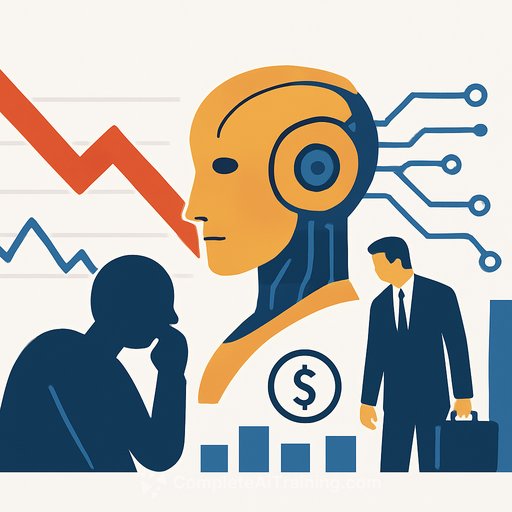Why AI Stock Tremors Are Ripping Through Portfolios
AI stocks have been shaking up portfolios lately, and the recent sell-off is drawing sharp attention. The pressure started last week with Nvidia's earnings report, which prompted investors to rethink their optimism. Shares have dropped about 6% over five trading sessions, and the trend has continued into this week with other AI-related stocks like Salesforce and Figma facing declines after underwhelming quarterly results.
This volatility raises the question: Are AI valuations peaking? Investors are increasingly cautious amid a slowing U.S. economy and mixed signals about corporate demand for AI solutions. The enthusiasm that once buoyed these stocks now faces scrutiny as companies report earnings that don't quite meet sky-high expectations.
Tom Siebel’s Take on AI Valuations
Tom Siebel, founder and executive chair of C3.ai, weighed in during a recent interview after his company’s stock took a hit. Siebel highlighted the disconnect between current valuations and fundamentals, pointing out companies trading at astronomical multiples despite significant losses. He argued that C3.ai, which has seen its stock drop 55% year-to-date, might actually be undervalued compared to some peers.
Regardless of whether C3.ai is a buy, Siebel’s comments underline a broader market skepticism. Restoring investor trust will take time, especially with new leadership working to turn things around quickly.
Market Sentiment and Analyst Views
Keith Lerner, co-chief investment officer at Truist, notes that after strong returns earlier this year, the bar for positive surprises is now very high. This makes the sector vulnerable to disappointments or results that simply don’t live up to lofty expectations. Lerner also points out that a recent MIT study questioned AI’s near-term productivity benefits, adding to the cautious mood.
Further complicating matters, OpenAI CEO Sam Altman has publicly warned about a potential bubble in AI, and some mixed earnings reports have tempered enthusiasm. Despite these headwinds, many tech companies maintain strong balance sheets and low leverage, which could help buffer them against economic downturns more than other sectors.
What This Means for Investors
The current environment suggests a cautious approach to AI stock dips. Valuations are under the microscope, and earnings need to consistently impress to support high multiples. For those in finance roles, understanding the evolving landscape of AI investments is crucial, especially as upcoming conferences and earnings seasons will further reveal how these companies perform under pressure.
For professionals looking to deepen their knowledge of AI and its impact on finance and markets, exploring targeted training can provide a solid edge. Resources like Complete AI Training's latest courses offer practical skills and insights on AI applications relevant to finance.
Looking Ahead
The Goldman Sachs Communacopia tech and media conference next week is expected to provide fresh insights. Live interviews and market-moving discussions will shed more light on the future of AI stocks and tech valuations. Keeping an eye on these developments will be essential for anyone managing portfolios exposed to this volatile sector.
Your membership also unlocks:






